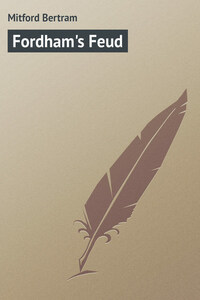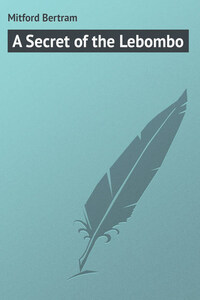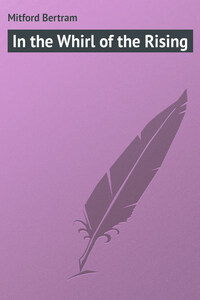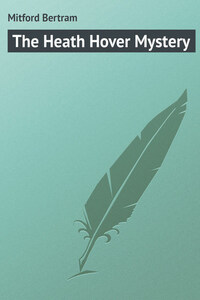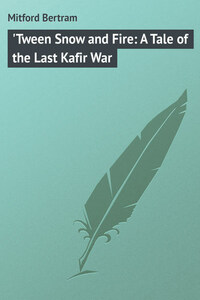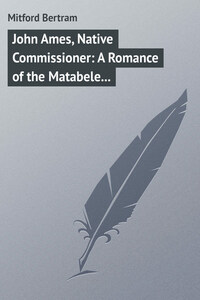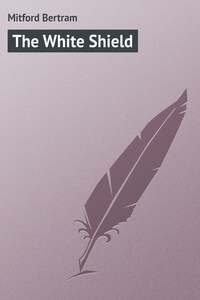Chapter One
At First Sight
The steamer Mont Blanc was sweeping round the rather dangerous promontory just beyond La Tour de Peilz.
The fine vessel was a brave sight as she sped arrowlike over the turquoise breast of Lake Léman, her straight stem shearing up a great scintillating blade of water on either side, her powerful paddles lashing up a long line of creaming rollers, hissing and curving away in her wake. From stem to stern she was gay with bunting, for this was but her second trip after being laid up through the winter season, and there was a spick-and-span newness about everything, from the whiteness of her commodious hurricane deck to the dazzling glass and luxurious lounges of her airy and spacious saloon.
The day was perfect. Not a cloud was in the arching heavens, not a ripple on the blue surface of the lake, which mirrored forth the hoary crowns of the Savoy Alps as though they were cut in steel. The great forest-clad slopes were rich in their velvety verdure, rising from the water’s edge on the Savoy side; and a dazzling snow shroud still covered the Dent du Midi half-way down to its base. On the Swiss shore the straggling towns and multitudinous villas lying among the fresh greenery of vineyards looked mere pigmy toys beneath the slopes of the great mountains. And from the same bosky slopes came ever and anon the glad, joyous shout of the cuckoo. It was June – but only just June – and the air, balmy and life-giving, knew no suspicion of sultriness.
“I say, Phil, my boy, it’s about time to collect our traps. We go off at the next stage but one – Hallo! What has become of the fellow?” broke off the speaker, turning to discover that his friend had left his side. “Ah! there he is. At it again too. By George, the dog’s irreclaimable!”
The said “dog” had withdrawn some yards from the speaker, and was standing with his back against the bulwarks apparently lost in contemplation of the scenery of the Savoy side. But he had chosen a very odd place for his study of Nature, for between the latter and himself, in the direction of his gaze, were multifold heads – and hats, and between these heads – and hats – and the canvas awning was a space of barely half a yard. Yet he seemed to gaze with rapt attention at something – or somebody. “I say, Phil, who is she, this time?” The suddenness of the question, the dry chuckle, the faintly sneering intonation, produced much the same effect on the gazer as the lash upon the half-broken thoroughbred. He started.
“Confound it, Fordham, you needn’t make a fellow jump so,” he retorted petulantly, with a slight flush. “Can’t a fellow look around him, I should like to know?”
“Oh, certainly he can. This is a free country – in fact ‘Liberté et Patrie’ is the Cantonal motto. You may even see it displayed at this moment – in triplicate too – among the bunting adorning this gallant craft. Ah – I see the point of attraction now – and this time, ’pon my life, Phil, I think there’s some excuse – for you,” he added, sticking his glass into his eye and sending a critical look into an apparently unconscious group opposite.
Philip Orlebar laughed, his good-humour quite restored. Indeed, it was never for long that he and that enviable attribute parted company.
Although the regular tourist season had not yet set in, the steamer’s decks still contained a sprinkling of all those nationalities which you would be sure to find represented there at that time of the day and of the year. Keen-faced Americans “doing” Europe with infinite zest and a Gladstone bag apiece; stolid Germans in long black coats – a duplicate of the latter invariably slung through the strap of their double field-glasses; a stray Muscovite noble, of refined manner and slightly blasé aspect; a group of English youths equipped with knapsack and alpenstock, bound for some mountain expedition with their Swiss tutor; and last but not least – in their own estimation at any rate – great in the importance of their somewhat aggressive sense of nationality, a muster of Britons numerically equalling all the other races and kindreds put together. There was the inevitable clergyman with his inevitable wife – the latter austere of visage, as became a good Evangelical in a land where the shops were kept open on the Sabbath. There was the British matron clucking around with her posse of daughters – which guileless damsels were being convoyed about the Continent to a like end as that which caused their mammas and grandmammas to be shipped off on the voyage round the Cape in the days of good old John Company. There were the regulation old maids, of the blue-stocking persuasion, Byron in hand, gazing yearningly upon the distant but gradually nearing walls of classic Chillon. And here and there, elderly but erect, natty of attire, and countenance darkly sunburnt beneath the turbanlike puggaree enshrouding his summit, stalked unmistakably the half-pay Anglo-Indian.
Upon one face in the group Fordham’s eyeglass, following his companion’s gaze, critically if somewhat contemptuously, came to a standstill. It was in profile at that moment, but whether in profile or full it was a face bound to attract attention. The regular features and short upper lip fully satisfied every requirement exacted by the canons of beauty. The eyes, large and earnest, now blue, now grey, according to the light under which they shone, rather imparted the idea that their possessor was inclined to take life seriously, and there was character in the strongly marked arching brows. A sheen of dark-brown hair rippled back in waves beneath a broad-brimmed sailor hat to roll into a heavy knot over the back of the neck.
